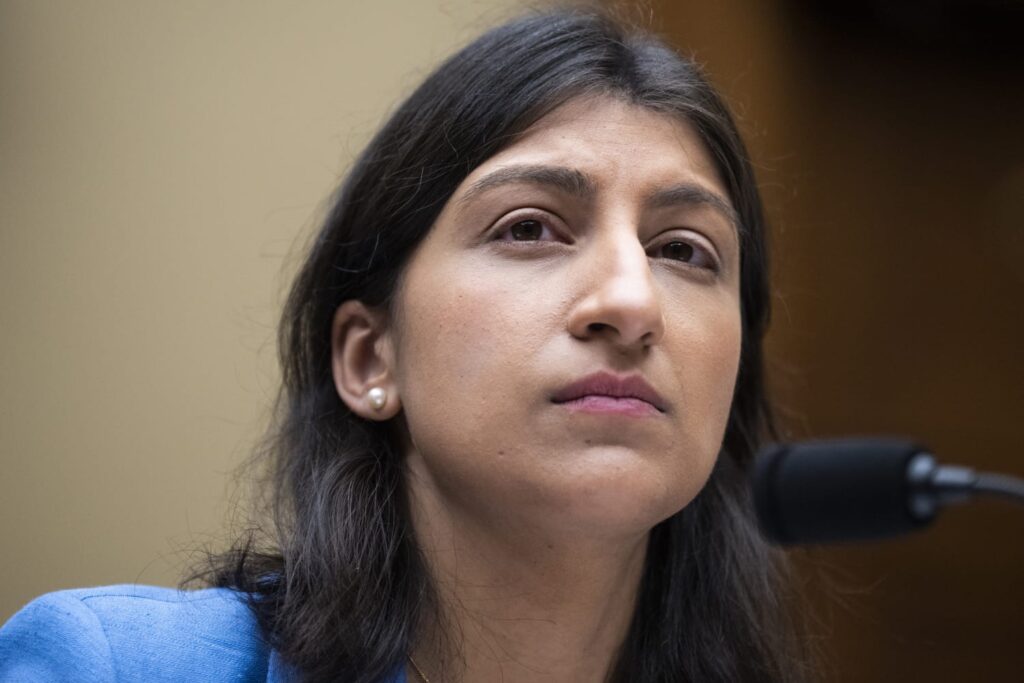The Biden administration has ordered a nationwide ban on employers forcing workers to sign non-compete agreements, which regulators say leads to higher pay for workers, but business groups are fighting a lawsuit in court. It is expected that an objection will be filed.
In a ruling Tuesday afternoon, the Federal Trade Commission (FTC) said non-compete clauses will now be illegal. It said the measures were necessary to “protect workers' fundamental freedom to change jobs, foster innovation and encourage the formation of new businesses.”
“Noncompete clauses keep wages low, stifle new ideas, and rob America of its economic dynamism,” FTC Chair Lina M. Khan said in a statement. “The FTC's final rule prohibiting non-competes will ensure Americans have the freedom to take new jobs, start new businesses, and bring new ideas to market,” she said.
The FTC estimates that nearly one in five Americans has a non-compete agreement. Such work has become increasingly common in industries with low-wage or hourly labor, such as fast-food franchises, restaurants, and security companies, and some employers are effectively recruiting workers to find work at competing establishments. They are trying to limit the ability to raise wages.
In addition to prohibiting all new noncompete agreements, the FTC's rules also apply to all existing noncompete agreements. Employers will now be required to notify workers bound by current non-competes that the non-compete will not be enforced.
The rules were welcomed by labor groups and left-wing policy experts.
“Noncompetition is exactly reducing competition. It's exactly what it sounds like,” said Heidi Schierholz, president of the progressive nonprofit Economic Policy Institute. “Lack of competition is bad for workers, bad for consumers, and bad for the economy as a whole. This rule is an important step toward creating an economy that is not only strong but also beneficial for working people.”
The AFL-CIO, America's largest labor organization, praised the new rules in a post on Tuesday, saying noncompete agreements “prevent workers from finding better jobs, lower wages, and stifle competition.” Stated.
But business groups have already opposed the ban, arguing that non-competes are essential to protecting trade secrets and confidential information. The group also argues that non-competition creates a more cooperative corporate environment and limits so-called “free riders,” or employees who take advantage of one company's methods and take their knowledge to other companies. , it also says it will ultimately help workers.
The U.S. Chamber of Commerce, the nation's largest business lobbying group, said it plans to sue the FTC over the ruling. The government said in a statement that the ban was an “unlawful power grab.”
“This decision sets a dangerous precedent for government micromanagement of businesses, with potential negative consequences for employers, workers, and the economy,” the report said.
Separately. The Dallas-based tax services firm has filed a lawsuit in Texas federal court that has proven hostile to the Biden administration's ruling, challenging not just the ban but the FTC's very structure.
“We uphold our unique formula for success, taught in good faith to our employees, and serve the legitimate interests of every company,” Chairman and CEO G. Brint Ryan said in a statement. We remain firmly committed to this.”
The FTC's rules are scheduled to go into effect in August, but are unlikely to go into effect until court challenges are resolved, which could take years.


